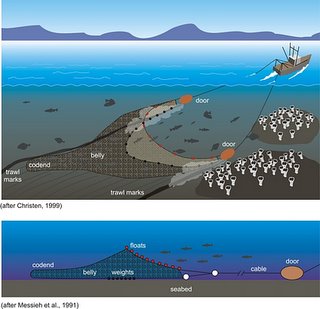While this was a painful outcome for some, there is an undeniable elegance to our election results. In their wisdom, the people of Canada collectively decided for the second election in a row to send a minority government to Ottawa.

To those who equate electoral success with unfettered power, this might seem a disappointing outcome. Yet there is an underlying intelligence to what is happening in Canada.
Even more than the last parliament, the political survival of Stephen Harper’s minority government will depend on being flexible, accountable and willing to engage in good faith dialogue and compromise.
This is no accident. I believe it is clear evidence of an important evolution of our democracy – a process being led not by politicians but by the Canadian public.
The Canadians have grown weary of the excesses of absolute power and the childish squabbling of partisan politics.
 More and more, we expect our politicians to actually listen to each other and cooperate like adults.
More and more, we expect our politicians to actually listen to each other and cooperate like adults. The commitment by all leaders on election night to try and make this fractured parliament work was not just a nicety; it was an acknowledgement of a growing political imperative.
For the time being, the Canadian electorate managed again to fashion a silk purse from a sow’s ear. However, our antiqued and unfair “first past the post” voting system also produced the usual litany of democratic causalities.
According to Fair Vote Canada, the big losers in this week’s vote included:
- 500,000 voters in Alberta who did not vote conservative, yet elected no one.
- 400,000 urban Conservative voters who did not elect a single representative in Montreal, Toronto or Vancouver.
- The more than 650,000 Green party voters who should have elected 12 MPs, and ended up wasting their votes yet again.
- NDP voters, who outnumbered Bloc supporters by one million, yet elected 22 fewer MPs.
- Women, whose representation dropped to less than 20% in our new parliament, with only 62 MPs .
Structural changes to our voting system are both needed and long overdue. Our “first past the post” system was long-in-the-tooth when we inherited it from the British 139 years ago. Canada remains one of three developed western nations still saddled with this electoral museum piece.
Strangely, some Canadians (and of course all politicians) still yearn for majority governments. To those puzzling souls, I can only suggest casting your mind back to the dark days of trough wallowing under the Mulroney Conservatives. Let’s also not forget the Versailles-like arrogance of the Chretien government and the abundant political rot that inevitably followed.
“Majority” governments are in fact a misnomer. Since 1921, Canada has had 15 “majority” governments of which only 4 garnered more than 50% of the popular vote. In all other cases over 50% of Canadians who bothered to vote, voted against whatever government enjoyed virtual dictatorial powers during their “majority” rule.
In contrast, virtually every government in Europe now uses some form of proportional representation, which typically results in representative, accountable and stable coalition governments as a matter of course.
These coalitions are not accidental shotgun weddings like the wary alliance between the Liberals and NDP in the last parliament,
 but are true coalition governments typically with a shared cabinet and caucus meetings.
but are true coalition governments typically with a shared cabinet and caucus meetings. Because different parties know that they may one day have to work together, the public debate tends to be more respectful than the embarrassing spectacles for which Ottawa has become infamous. Coalitions also mean that governments are more accountable to the people between elections – not just on voting day.
Countries that use proportional representation also have far better representation from women – up to 42% in Sweden. This system has also been shown to significantly increase voter participation – over 80% in countries such as Denmark, Sweden, and the Belgium.
In contrast, the turnout in this week’s election was a mere 65%. This is admittedly up from the dismal figure of 61% in the 2004 vote, the worst showing since 1898. But by global standards, our voter participation remains frankly, pathetic.
An electoral system such as “mixed member proportional” representation (MMP) would be a good fit for Canada because it provides for local representation while also ensuring that elected seats accurately reflect the popular vote.
Stephen Harper says he is serious about changing how things are done in Ottawa. Many Canadians want to believe him. Bringing in MMP would be a fitting and elegant legacy of this diverse parliament, and our evolving democracy.
Or perhaps he is just another politician...
Mitchell Anderson is a freelance writer based in Vancouver. This piece was published in the Ottawa Citizen on Jan. 26.






